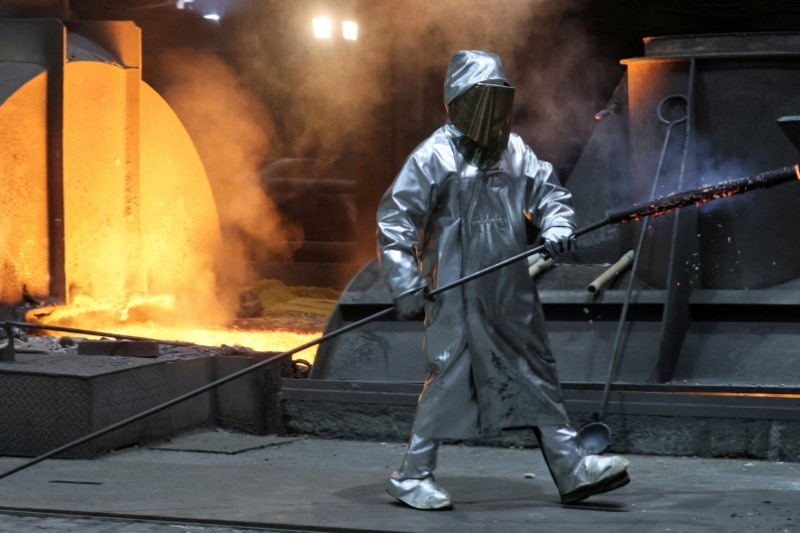LONDON (Reuters) - The euro zone economy showed tentative signs of recovery at the start of the year, according to a survey which showed rising inflationary pressures, bolstering the European Central Bank's case for keeping interest rates at record highs.
HCOB's composite PMI for the bloc, compiled by S&P Global and seen as a good guide of overall economic health, rose to 47.9 in January from December's 47.6, matching a preliminary estimate.
That was its best reading since July but remained below the 50 mark separating growth from contraction.
Monday's survey also indicated both input and output costs rose faster last month and while an index measuring demand did rise, it was still firmly below breakeven. The output prices index rose to an eight-month high of 54.2 from 53.8.
"The European Central Bank's hesitancy to cut interest rates gains clarity when considering the surge in the PMI price indices," said Cyrus de la Rubia, chief economist at Hamburg Commercial Bank.
"With both input and output prices in the services sector on the rise, the ECB is reluctant to ease monetary policy."
Late last month the ECB held interest rates at record highs and reaffirmed its commitment to fighting inflation.
A PMI for the bloc's dominant services sector dipped to 48.4 from December's 48.8, in line with the flash estimate.

However, indicating services firms expect things to pick up, optimism about the year ahead was at an eight-month high and they increased headcount at the fastest rate since September. The employment index rose to 51.2 from 50.8.
The downturn in euro zone factory activity eased for a third month in January, a sister survey showed last week.